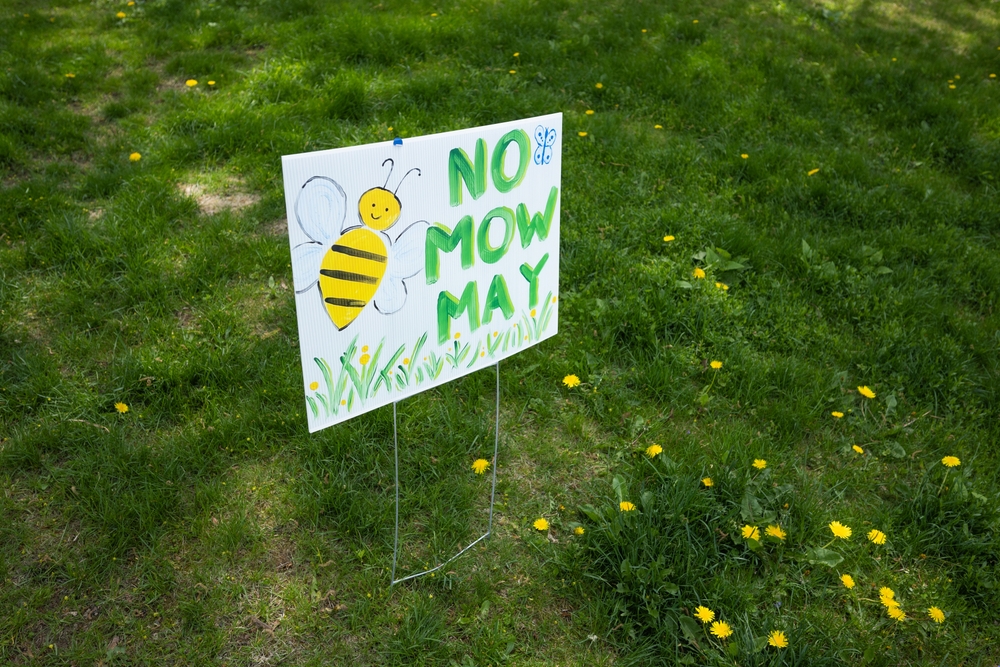Birds, Bees, & Bugs
The week of June 23, 2019 - We explore the solutions helping our environment's most productive and important little creatures.

Attention lazy gardeners! Why doing less can boost butterfly populations in your garden
A recent scientific study published in the journal Science of the Total Environment demonstrates that a small change in lawn maintenance habits can have a significant impact on butterfly populations, providing hope for conservation efforts and helpful information for gardeners who want to help Read More...

Love bees but need to relocate a hive? Here’s how to do it sustainably
If you are a longtime reader of The Optimist Daily, you’ll know that our team loves bees (and other pollinators). We've published many stories on why bees are critical to our world’s ecosystem and to our species' survival, as well as articles that highlight amazing people and initiatives that Read More...

What vampire bats teach us about friendship
There are still biological and behavioral mysteries to social bonding that experts are trying to figure out. With so many factors at play it can be hard to put a fine point on why we do some things and not others to get close to one another. Sometimes, it pays to look at other examples of mammalian Read More...

Here’s why mosquitos still bite us even when wearing repellent
As the warmer months approach, the number of mosquito bites you're getting is probably starting to rise. Those pesky insects use their mouths to penetrate our skin and suck up our blood, leaving an itchy, swollen bite in its place. For some areas in the world, a bite from one of these animals Read More...

The New Symbiosis: Living with Wildlife
“We’re animals. We’re born like every other mammal and we live our whole lives around disguised animal thoughts.” - Barbara Kingsolver By Oliver Kammeyer Human society developed an idea over time that it is separate from nature, that we exist apart from it, or in spite of it. Perhaps it Read More...

Birdwatchers in Singapore awestruck by sighting of once extinct bird
Bird enthusiasts, rejoice! A rare sighting of the once extinct green broadbill bird in Singapore has created a stir among bird watchers, who have flocked to the offshore isle of Pulau Ubin to see the emerald green creature. The bird, which gets its name for its highlighter-green plumage, was Read More...

This UK city is making its urban space greener with bee-friendly bus stops
About two years ago, we wrote about an amazing bee-friendly initiative in the Dutch city of Utrecht. Looking to make its urban space as accommodating as possible to pollinators, the fourth largest city in the Netherlands decided to adorn hundreds of its bus stops with green rooftops — thus Read More...

Beeflow wants to save the bees and make them stronger
We cannot continue to feed our world without pollinators, namely bees, which is why Argentina-based startup Beeflow is working to not only save the bees, but even make them more productive. Like many other bee cultivators, Beeflow rents out their colonies to farmers to better pollinate the Read More...

Bee-friendly wildflower meadows are blooming across Germany’s biggest cities
Germany is home to about 580 wild bee species, most of which have their habitat in urban areas. More than half of these species are endangered or on the brink of extinction. The increased use of insecticides, exposure to noxious exhaust fumes, and above all a loss of diverse habitats, are the main Read More...

This unusual greenhouse in France is growing insects instead of vegetables
Though it may look like a normal hothouse that grows vegetables, the Savéol experimental greenhouse in Brittany boasts a very different kind of crop — insects. The goal? To breed plant-friendly invertebrates that can enable farmers to produce pesticide-free tomatoes. From bumblebees to wasps Read More...


